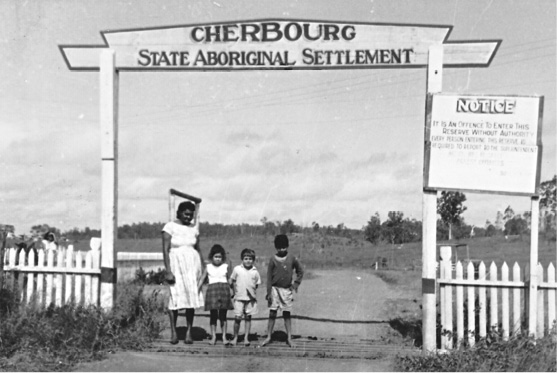
The entry to Cherbourg State Aboriginal Settlement during the 1950s included a notice to visitors: ‘It is an offence to enter this reserve without authority. Every person entering this reserve is required to report to the superintendent.’ (Courtesy Joan Alterator, Nurse Secombe Collection)

An aerial view of Cherbourg during the 1920s–30s shows the rows of houses that made up the ‘camp’ where Aboriginal families lived. The trees and larger houses in the centre of the picture are where the white administrators lived. The settlement also had a superintendent’s office, hospital, hygiene depot, retail store, school, dairy farm and saw mill. (Courtesy Queensland Museum)
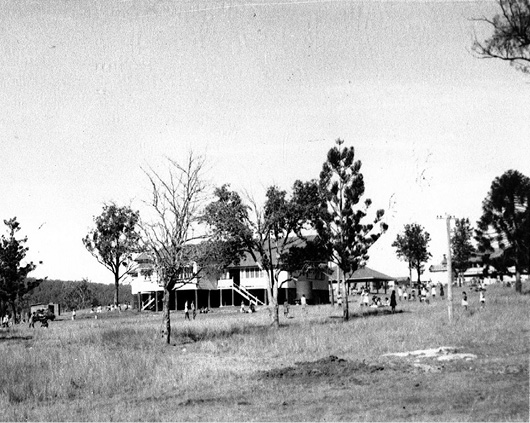
Cherbourg school in the 1950s where, before school, children would be lined up and inspected for cleanliness. (Courtesy State Library of Queensland/John Oxley Library)

Granny (Nancy) Chambers worked at the Cherbourg soup kitchen during the winter months. (Courtesy Queensland Museum/Betty McKenzie Collection)
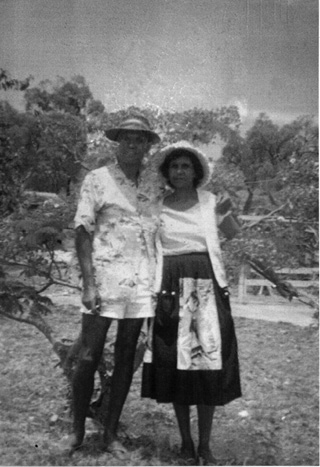
Lesley’s ‘Cherbourg’ parents, Jack (Pa) and Naomi (Ma) Malone, on Fantome Island where one person was allowed just one visit per year. (Courtesy Sandra Morgan)

The house where Lesley grew up at Cherbourg after renovations. The bunya tree is still standing. (Courtesy State Library of Queensland/John Oxley Library)
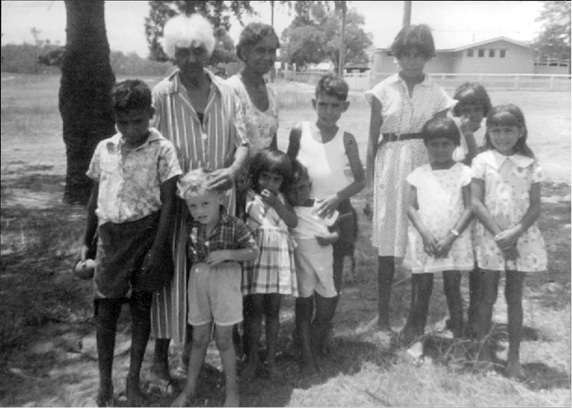
Granny and Mum (Ma) under the bunya tree with (left to right): Donny, Donald, Jeanette, Frank, Claude, Lesley and Grace. Dawn is standing in front of Lesley with a friend. (Courtesy Amy Farr-Wihangi)

Cooking and sewing classes were held in a domestic-science building. After primary school, most girls from Cherbourg would be trained in making beds, cooking and cleaning before being contracted out to work as domestic servants. (Courtesy State Library of Queensland/John Oxley Library).
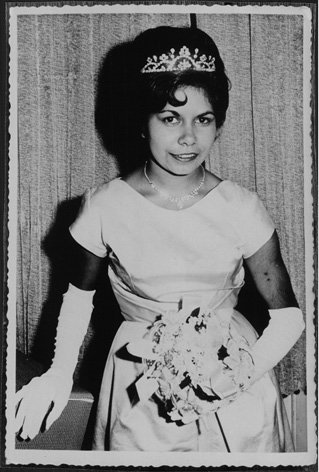
Lesley posing before the debutante ball in September 1964.
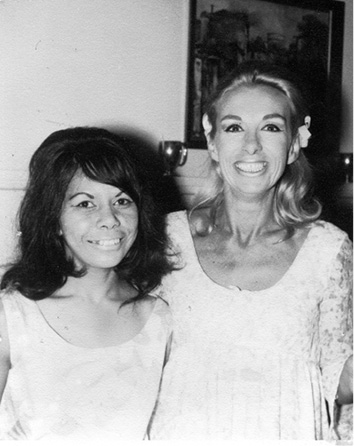
Lesley and Andrée at Lesley’s 21st birthday party, which Andrée Roberts and her husband hosted at their Clayfield residence.
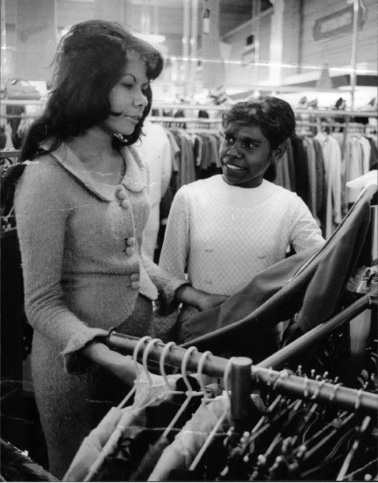
Lesley and friend Avril visiting Brisbane’s McDonnell & East department store in 1968. This was one of the few Brisbane stores where Aboriginal women were allowed to shop. The Department of Native Affairs set up an account on behalf of the women in lieu of exchanging cash. (Courtesy Jim Fenwick)
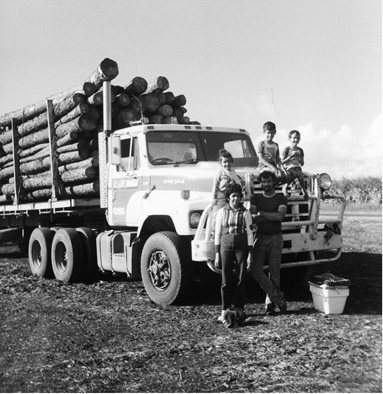
Lesley and husband Willie, with Tammy, Dan and Rodney, in front of Willie’s truck loaded with pine logs. (Courtesy Lyn Harold)
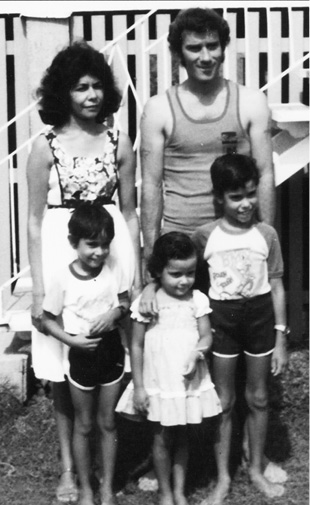
The Williams family in happier times at Calico Creek, 1982.
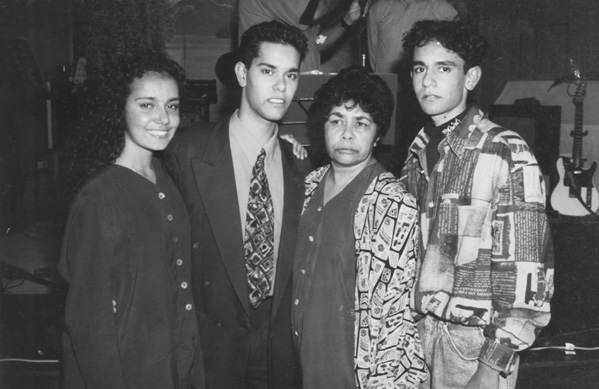
This photo of Tammy, Dan, Lesley and Rodney Williams was taken in 1994 while Tammy and Rodney were still at high school and Dan was working in Canberra.
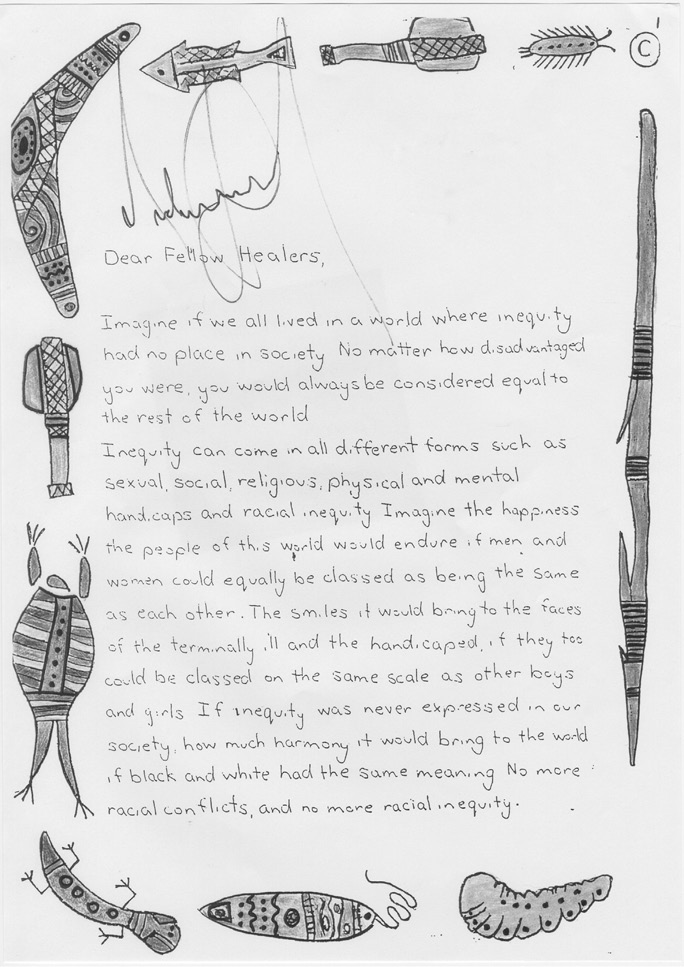
Tammy’s winning letter that earned her a trip to Michael Jackson’s Neverland Ranch in the United States. The letter was later signed by the famous entertainer when he visited Australia for the HIStory world tour.

A newspaper clipping from the Santa Barbra News-Press on 19 April 1995, showing Tammy giving a press statement in front of Michael Jackson’s house as part of the Heal the World Conference 1995.
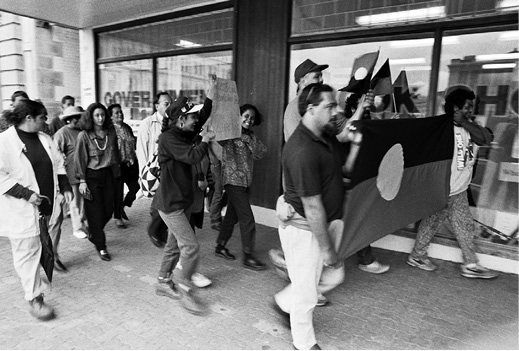
A protest march to Parliament House in Brisbane during the mid-1990s, following a Justice for Aboriginal Workers Campaign rally, organised by Lesley and her sister, Alex. (Courtesy Michael Jackson)
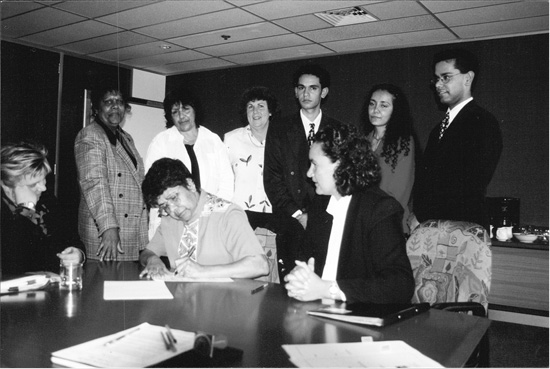
Lesley proudly signing the Deed of Settlement at a ceremony held in August 1999. Lesley is seated at the table with solicitor Merran Lawler (left) and Kerri Tim. Standing from left to right: sisters Sandra and Alex; sister-in-law Lyn; and children Rodney, Tammy and Dan.
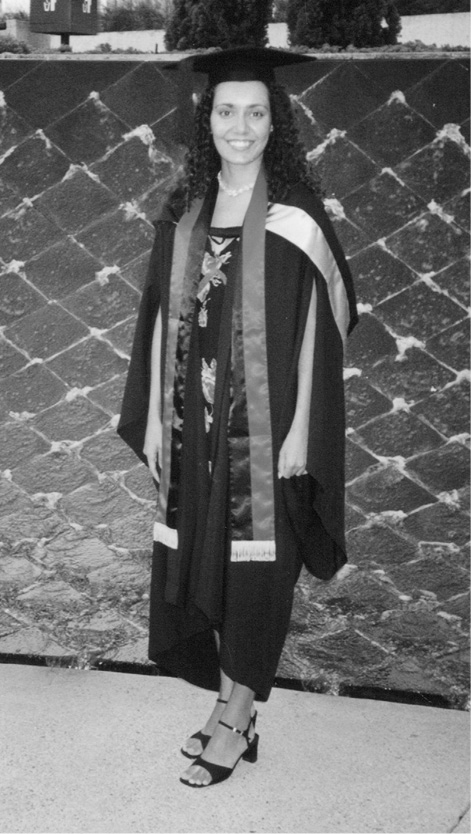
Tammy made a vow at a young age not to be a troublemaker, almost as an act of rebellion. She graduated with a law degree from Queensland University of Technology in 2001 and was admitted as a barrister the following year.